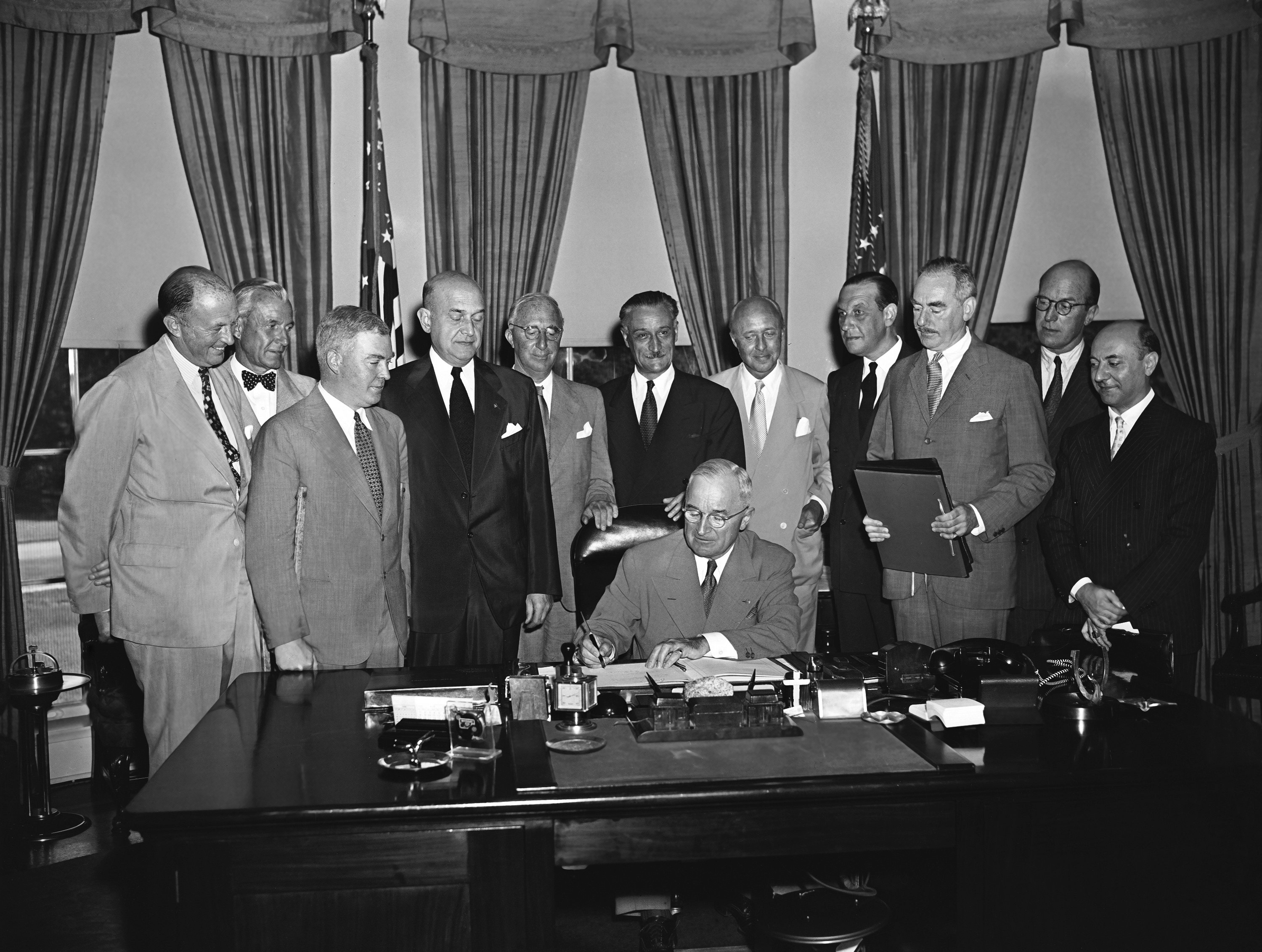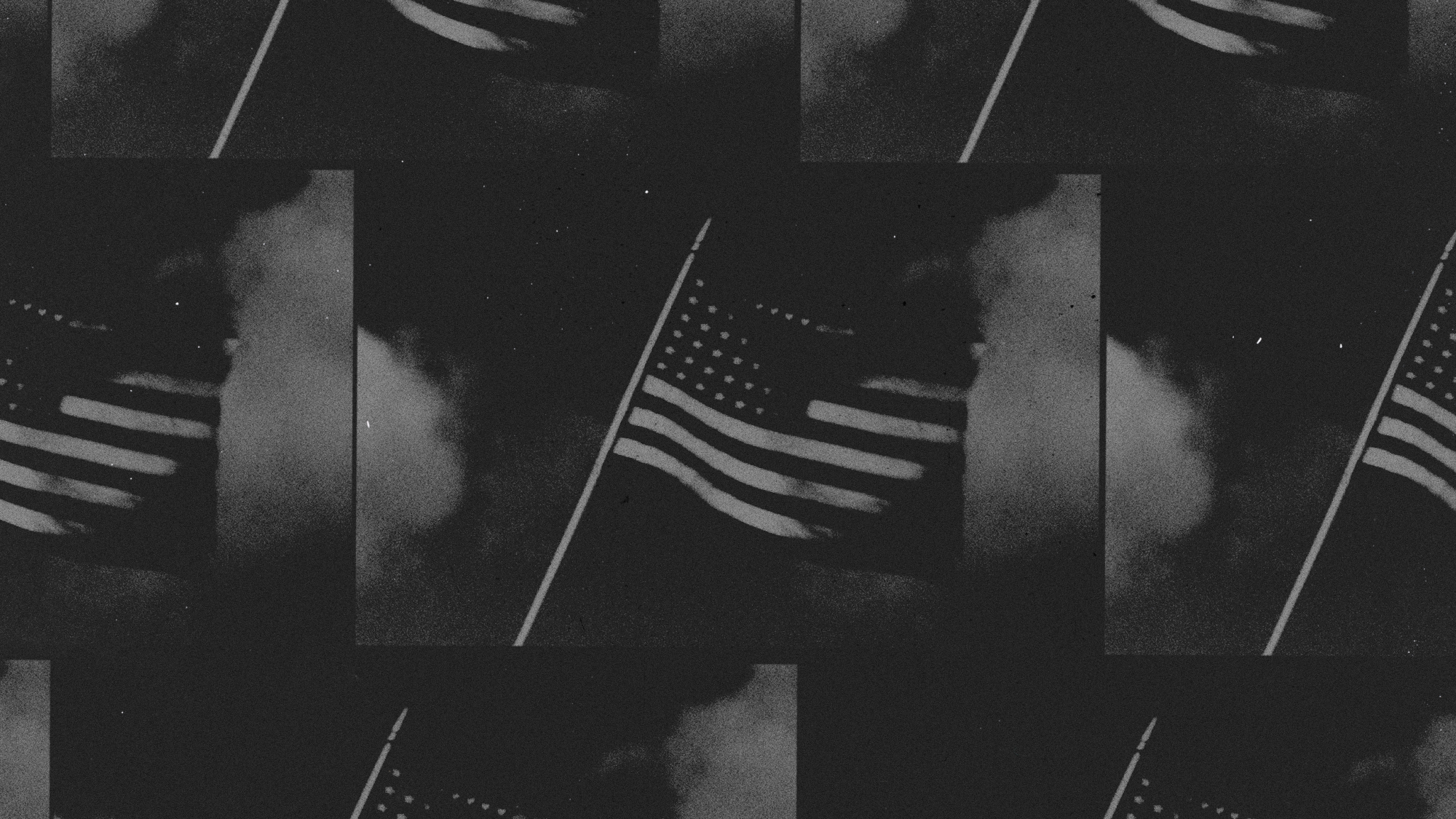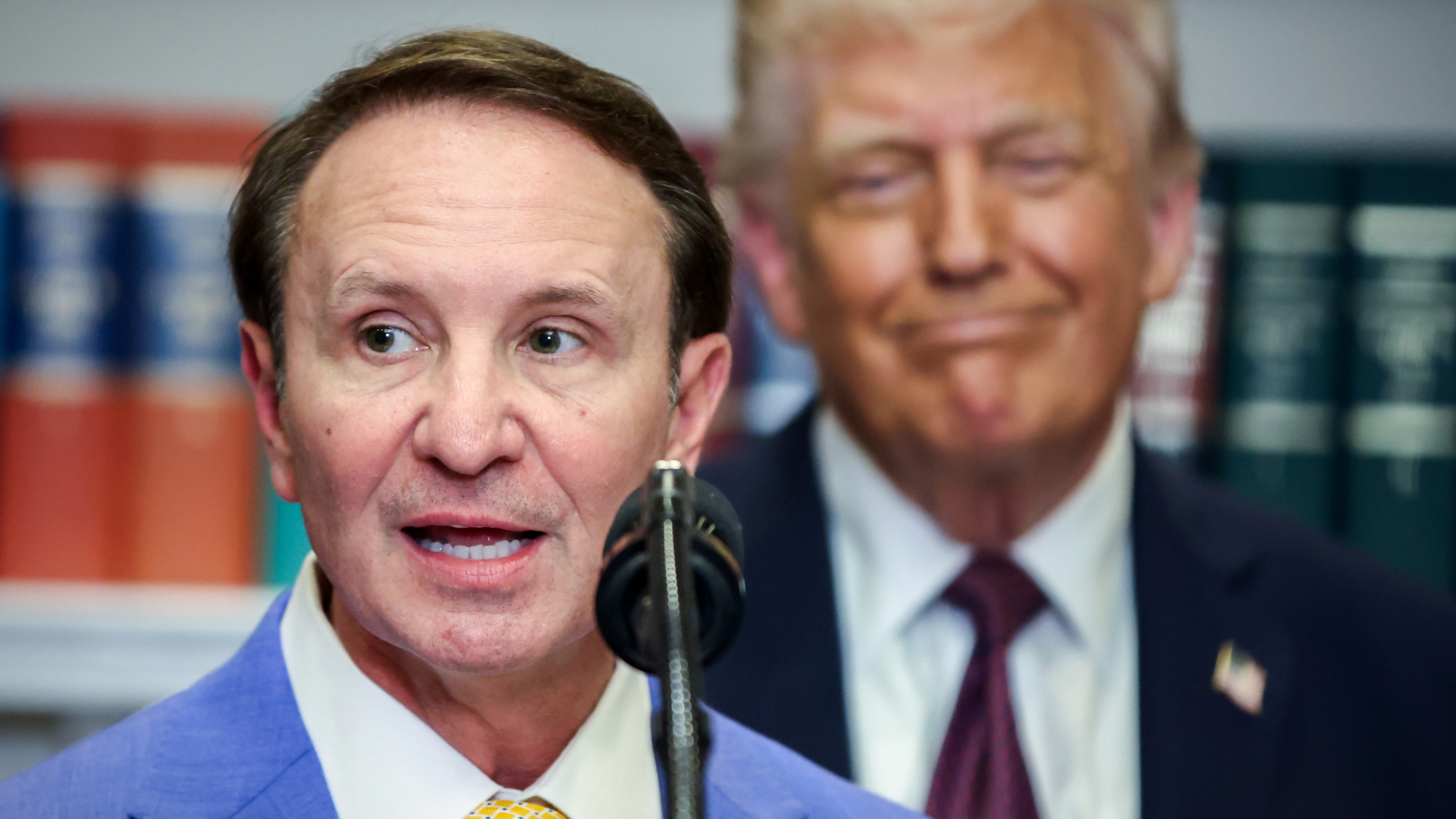The origins of NATO
The alliance that Vladimir Putin blames for his assault on Ukraine originated as a defensive bulwark against Soviet aggression.

A free daily email with the biggest news stories of the day – and the best features from TheWeek.com
You are now subscribed
Your newsletter sign-up was successful
The alliance that Vladimir Putin blames for his assault on Ukraine originated as a defensive bulwark against Soviet aggression. Here's everything you need to know:
Why was NATO founded?
In the aftermath of World War II, the Soviet Union saw an opportunity to extend communism across a European continent that had been devastated and weakened by war. In 1948, Communists backed by the Soviets overthrew the elected government of Czechoslovakia and purged the opposition; months later, the USSR blockaded Allied-controlled West Berlin in a dispute over Germany's future. Soviet control of eastern and central Europe — an "Iron Curtain," as Winston Churchill called it — deeply alarmed the West and led to meetings about joint security. In 1949, the U.S. and Canada joined 10 European countries in ratifying the North Atlantic Treaty, which established its namesake organization and bound the U.S. to its first-ever peacetime military alliance. "We hope that it will prevent World War III," said President Harry Truman. A key pillar in NATO's founding treaty was Article 5, which states that an attack on any one member was an attack on all and would be met with a collective military response.
The Week
Escape your echo chamber. Get the facts behind the news, plus analysis from multiple perspectives.

Sign up for The Week's Free Newsletters
From our morning news briefing to a weekly Good News Newsletter, get the best of The Week delivered directly to your inbox.
From our morning news briefing to a weekly Good News Newsletter, get the best of The Week delivered directly to your inbox.
What role did NATO play in the Cold War?
After West Germany joined NATO in 1955, the Soviets responded by creating the Warsaw Pact. That agreement bonded the USSR with seven Eastern European countries in its own military alliance. Warsaw Pact nations and NATO were locked in a stalemate through the 1950s. The Cold War remained "cold," and an uneasy peace prevailed, largely because Western and Soviet nuclear arsenals provided "mutually assured destruction." NATO never engaged in direct combat with Warsaw Pact countries and never needed to trigger Article 5 — facts that have led some historians to call it the most successful military alliance in history. (Article 5 has been triggered only once — by the Sept. 1, 2001, attacks on the U.S., which led NATO nations to send troops to Afghanistan to support U.S. forces.) Finally, in 1991, the Cold War ended when the Soviet Union collapsed and the Warsaw Pact alliance unraveled.
What happened then?
NATO members became embroiled in an ideological debate over the organization's purpose. Some member states wanted to redefine NATO as a political alliance, but in the end, there was agreement that a continued military presence was prudent. "You don't cancel your home insurance policy just because there have been fewer burglaries on your street in the last 12 months," said British Prime Minister Margaret Thatcher. Former Warsaw Pact nations Poland, Hungary, and the Czech Republic joined NATO in the 1990s, and the former Soviet Baltic states of Estonia, Latvia, and Lithuania followed in 2004. This expansion solidified the West's post–Cold War vision of Europe as democratic and capitalist, but left Russia deeply suspicious of NATO's intentions.
A free daily email with the biggest news stories of the day – and the best features from TheWeek.com
Why the suspicions?
Russia's objections to the growth of NATO predate the rise of Vladimir Putin. In 1993, Russian President Boris Yeltsin said any eastward enlargement of NATO would be "illegal," and this has been one of the few things Russia's political elites have agreed upon over the decades. "Many Russians see NATO as a vestige of the Cold War, inherently directed against their country," Deputy Secretary of State Strobe Talbott said in 1995. "They point out that they have disbanded the Warsaw Pact, their military alliance, and ask why the West should not do the same." The U.S. saw NATO evolving into a multifaceted security organization against all threats, including terrorist groups based in the Middle East. Putin, however, always considered NATO's eastward expansion to be a betrayal. He claims that when Germany was reunified in 1990, Secretary of State James Baker and other Western officials promised that NATO would not expand into former Soviet-controlled nations in the east. Since that time, NATO has added 14 new members.
What about Ukraine's interest in joining NATO?
William Burns, who now serves as Biden's CIA director, wrote in a 2008 memo to Secretary of State Condoleezza Rice that Russia would consider Ukrainian entry into NATO to be "the brightest of all red lines for the Russian elite (not just Putin)." Offering Ukraine membership, Burns said, would "create fertile soil for Russian meddling in Crimea and eastern Ukraine." But like other nations once in Russia's orbit, the Ukrainians were attracted to the prosperity, freedom, and democratic ideals of Europe and the West, and sought admission to NATO. The alliance told Ukraine in 2008 that it could apply to be admitted, but it did not provide a timeline and was happy to leave the question of its eventual membership unanswered. Nonetheless, Putin continued to see possible Ukrainian membership as a threat and an insult. "Fundamental Russian concerns were ignored," Putin said shortly before ordering the invasion. "Let's imagine that Ukraine is a NATO member state and it initiates a military operation. What should we do then? Fight against the [entire] NATO bloc?"
The future of NATO
Russia's brutal assault on Ukraine has solidified the alliance's commitment to collective defense to a degree that seemed unthinkable just months ago. For years, NATO has largely relied on U.S. military might for its strength. This made it an object of ire for former President Donald Trump, who called NATO "obsolete" and demanded that European countries spend more on defense to support the alliance. NATO members had agreed in 2006 to spend 2 percent of their GDP on defense, although most states never made a serious effort to hit that benchmark. In a radical shift away from its strong postwar tradition of pacifism, Germany said last month it would increase its defense spending to more than 2 percent of its GDP, along with sending weapons to Ukraine. "There could be no other answer to Putin's aggression," said German Chancellor Olaf Scholz. NATO members joined the U.S. in banning Russian banks from the international banking system and imposing withering sanctions on its economy. "It's the rebirth of a new Europe," said Michael McFaul, a former U.S. ambassador to Russia. "This will have major consequences moving forward for the future of Europe, for the future of the transatlantic alliance, for the future of NATO."
This article was first published in the latest issue of The Week magazine. If you want to read more like it, you can try six risk-free issues of the magazine here.
-
 Local elections 2026: where are they and who is expected to win?
Local elections 2026: where are they and who is expected to win?The Explainer Labour is braced for heavy losses and U-turn on postponing some council elections hasn’t helped the party’s prospects
-
 6 of the world’s most accessible destinations
6 of the world’s most accessible destinationsThe Week Recommends Experience all of Berlin, Singapore and Sydney
-
 How the FCC’s ‘equal time’ rule works
How the FCC’s ‘equal time’ rule worksIn the Spotlight The law is at the heart of the Colbert-CBS conflict
-
 Is the American era officially over?
Is the American era officially over?Talking Points Trump’s trade wars and Greenland push are alienating old allies
-
 Trump’s Greenland ambitions push NATO to the edge
Trump’s Greenland ambitions push NATO to the edgeTalking Points The military alliance is facing its worst-ever crisis
-
 Can Starmer continue to walk the Trump tightrope?
Can Starmer continue to walk the Trump tightrope?Today's Big Question PM condemns US tariff threat but is less confrontational than some European allies
-
 The billionaires’ wealth tax: a catastrophe for California?
The billionaires’ wealth tax: a catastrophe for California?Talking Point Peter Thiel and Larry Page preparing to change state residency
-
 Bari Weiss’ ‘60 Minutes’ scandal is about more than one report
Bari Weiss’ ‘60 Minutes’ scandal is about more than one reportIN THE SPOTLIGHT By blocking an approved segment on a controversial prison holding US deportees in El Salvador, the editor-in-chief of CBS News has become the main story
-
 Danes ‘outraged’ at revived Trump Greenland push
Danes ‘outraged’ at revived Trump Greenland pushSpeed Read
-
 Has Zohran Mamdani shown the Democrats how to win again?
Has Zohran Mamdani shown the Democrats how to win again?Today’s Big Question New York City mayoral election touted as victory for left-wing populists but moderate centrist wins elsewhere present more complex path for Democratic Party
-
 Millions turn out for anti-Trump ‘No Kings’ rallies
Millions turn out for anti-Trump ‘No Kings’ ralliesSpeed Read An estimated 7 million people participated, 2 million more than at the first ‘No Kings’ protest in June